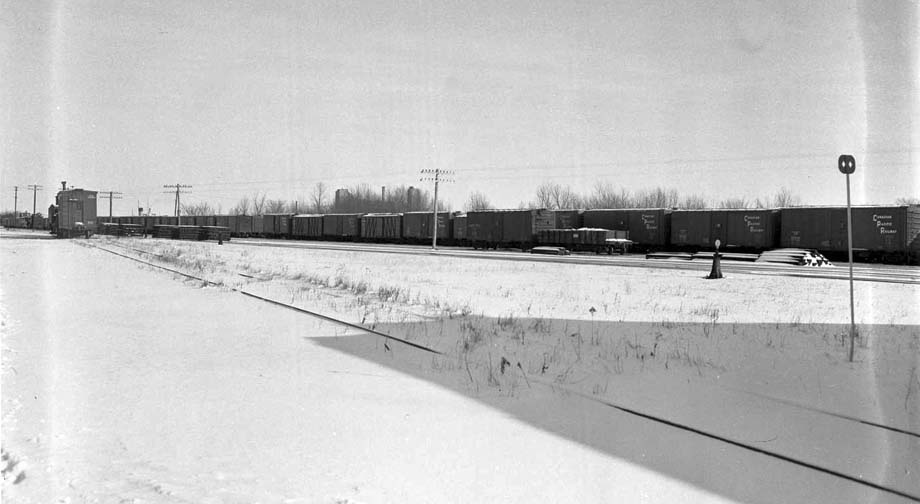Montreal Quebec - Scores of towns and hamlets tightened their belts today as a countrywide strike brought operations of the Canadian Pacific Railway to a stop.
For isolated communities depending upon Canadian Pacific service alone, a prolonged strike meant serious shortages of food, fuel, and mail in midwinter, some industries already had laid off men, though the most serious consequences would be several days in developing.
Prime Minister Louis St. Laurent, returning to his office in Ottowa after a holiday, met with his Cabinet to consider the situation created by the walkout which began at 16:00 yesterday.
He refused to comment on questions about possible strike-ending legislation that might be submitted to Parliament when it meets.
Calls Strike
The Brotherhood of Locomotive Firemen & Enginemen called the strike by its 3,000 members in a dispute over a proposed gradual elimination of firemen from diesel engines on freights and in yards.
They said the walkout was "totally effective" from Halifax, Nova Scotia, to Victoria, British Columbia.
The railroad said 64,000 employes were idle over the 17,000 mile system.
About 11,000 non-union employes and telegraphers were still working.
The dispute did not affect the government-owned Canadian National Railway, largest in Canada.
Agree to Proposal
In an 11th hour peace attempt by Cabinet ministers, which collapsed on New Year's Eve, both sides agreed to a proposal for an independent tribunal to study the firemen duties question.
But the railroad insisted that the tribunal's report should be binding on both sides, and the union refused.
Author unknown.
(likely no image with original article)
(usually because it's been seen before)
provisions in Section 29 of the
Canadian Copyright Modernization Act.

